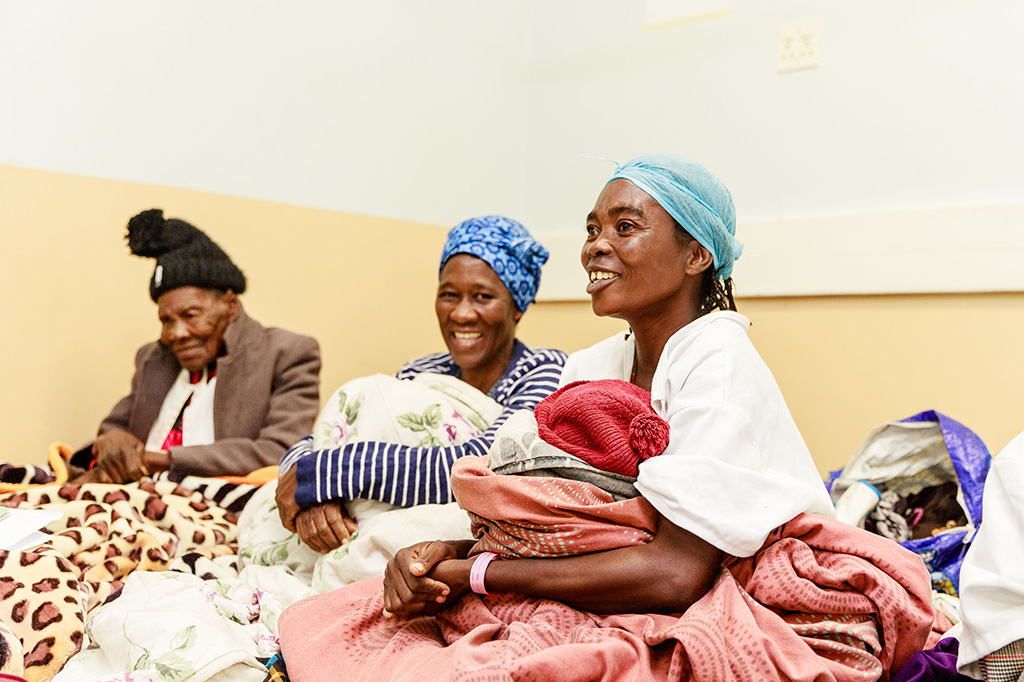Vision & Goals
Our Mission
SEEing the Bigger Picture
Individuals Make Up Communities
Our organization strives to improve the lives of each individual that comes to us seeking sight, and we are proud to say that our services help to strengthen underserved communities one person at a time.
Each member of a community contributes to the overall health and strength of that community in one way or another.

Four Initiatives
SEE’s comprehensive approach to global blindness involves four initiatives:
- Taking direct action through vision screenings, treatment, and sight-restoring surgeries, both locally in the Santa Barbara community and in more than 40 countries around the world;
- Educating ophthalmologists to perform the Manual Small Incision Cataract Surgery (MSICS) procedure, to enable high-volume, cost-effective cataract surgeries in resource-limited environments;
- Advocating for vision health and educating individuals on the importance of comprehensive vision care; and
- Investing in sustainable programs which address inequities in vision care and create viable future treatment options.
Our Global Community: Vision & Sustainable Development Goals
The 2030 Agenda for Sustainable Development, as established by the United Nations in 2015, is a blueprint to a better world. Within that agenda, vision care is a crucial contributor to global well-being. Increased access to high-quality eyecare is a significant factor in poverty reduction, economic growth, and reducing gender and income inequalities.
By restoring sight to those in need and making eyecare more accessible to all, we are striving to achieve the following sustainable development goals:
SEE's Sustainable Development Goals
SDG #1: No Poverty
Poverty is both a cause and a consequence of preventable blindness.
Individuals living with visual impairments are often less likely to be able to work and are therefore more likely to live below the poverty line. It is estimated that the total productivity loss from vision impairment adds up to over $400 billion annually (Lancet, 2021).
Access to eyecare services thus helps reduce poverty and increases economic and employment opportunities.
SDG #2: Zero Hunger
For many, being able to see can be the difference between surviving and starving.
Preventable blindness can affect one’s ability to earn a living and thus afford food.
Access to eyecare can increase household income, which reduces hunger. According to global data, 46% of households moved up an income bracket following cataract surgery.
By providing low-income people with free eyecare services like cataract surgery, we can increase income and thus access to food.
SDG #3: Good Health and Well-Being
Being able to see clearly is essential to an individual’s health and well-being.
Visual impairments can have far-reaching consequences, including loss of independence and employment opportunities.
Not only do these stress factors inevitably lead to negative consequences for an individual’s well-being, but preventable blindness can also lead to an increased risk of mental health challenges, cardiovascular diseases, and mortality.
By improving access to high-quality eyecare services we can make patients, families, and communities healthier and stronger.
SDG #4: Quality Education
Visual impairments can have negative consequences on a child’s education. Students rely heavily on their vision to succeed in school and any impairments can cause a significant disadvantage.
Poor eye health can also lead to symptoms of eye strain, including headaches, fatigue, and poor attention. (Children’s Hospital of Philadelphia, 2018)
In the developing world, children are also often tasked with caring for their blind family members, which can disallow them from attending school at all.
By making eyecare more accessible worldwide, we are making it possible for more children to receive a quality education.
SDG #8: Decent Work and Economic Growth
Individuals living with vision impairments often have lower rates of workforce participation and productivity as it becomes more difficult — or even impossible — to work without one’s sight.
In addition, those living in developing countries often work in environments that cause long term vision impairments.
For example, farmers who spend a lot of time outdoors are exposed to the sun more often, which can result in cataracts. Due to lack of access to eyecare services, these individuals almost always reach advanced stages of cataract development.
By making eyecare more accessible worldwide, we can help re-facilitate participation in the workforce and ensure those in need can achieve economic growth and stability.
SDG #10: Reduced Inequalities
Millions of people are living with preventable blindness simply because they do not have access to the care they need.
Over 70% of these individuals are older than 50, 55% identify as women and girls, and over 90% are from rural, developing areas where the populations are disproportionately marginalized.
By making eyecare more accessible worldwide, we directly impact the inequalities these populations face.
Get Our Monthly Updates
Connect With SEE
Learn More
Donate
(805) 380-7522
Mail donations to:
SEE International
PO Box 981263
W. Sacramento, CA 95798-1263
Home office address:
6500 Hollister, Suite 120
Goleta, CA 93117
Tax ID: #31-1682275


